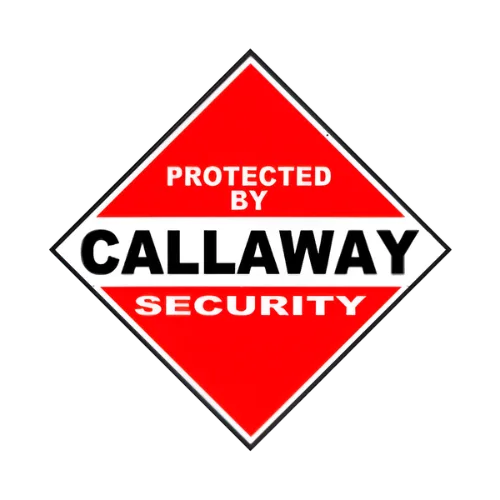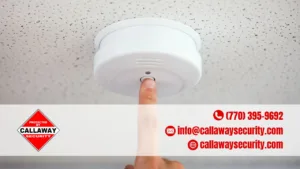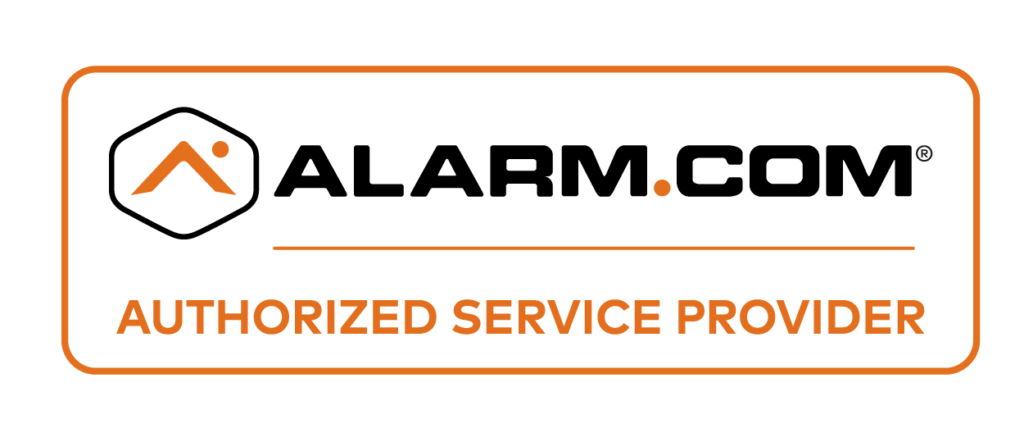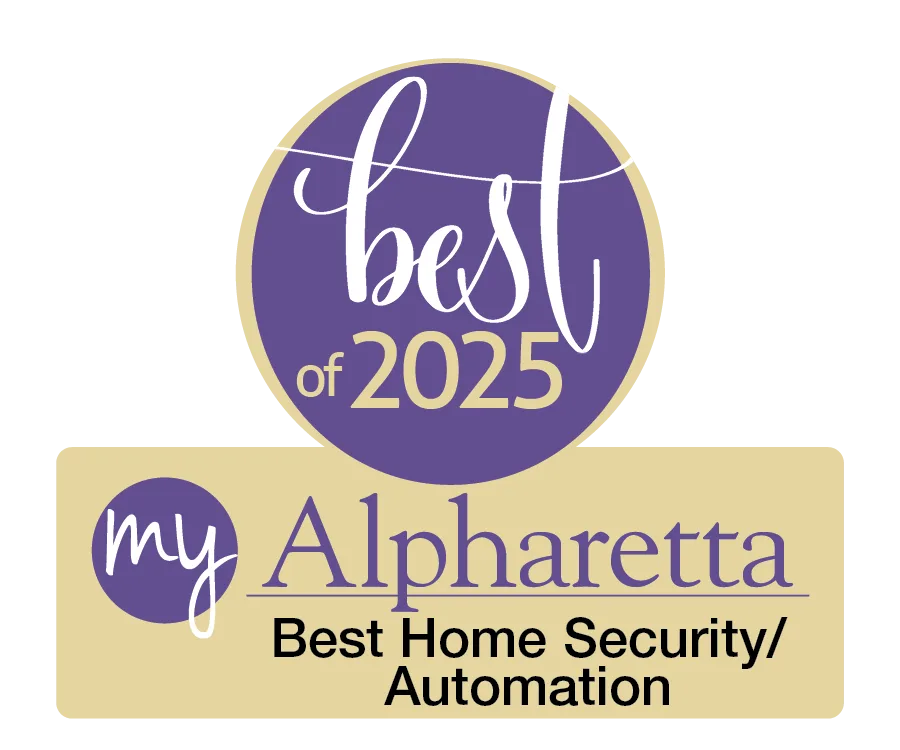Commercial security integration refers to the process of combining various security systems and measures to create a comprehensive and cohesive security solution for businesses. This includes the integration of access control systems, video surveillance systems, intrusion detection systems, and fire alarm systems, among others. The goal of commercial security integration is to enhance the safety and security of a business, its employees, and its assets.
Security is of utmost importance in businesses for several reasons. Firstly, it helps protect the physical assets of a business, such as equipment, inventory, and property. Without proper security measures in place, businesses are vulnerable to theft, vandalism, and other criminal activities. Secondly, security also ensures the safety of employees and customers. By implementing effective security measures, businesses can create a safe environment that promotes productivity and peace of mind. Lastly, security is crucial for maintaining the reputation and credibility of a business. A security breach can lead to financial losses, legal issues, and damage to the brand image.
Key Takeaways
- Commercial security integration is the process of combining different security systems to create a comprehensive security solution for businesses.
- Enhancing protection measures is crucial for businesses to prevent security breaches and protect their assets, employees, and customers.
- Commercial security integration offers benefits such as improved efficiency, reduced costs, and increased safety and security.
- There are different types of security systems for commercial use, including access control, video surveillance, and intrusion detection systems.
- Factors to consider when choosing a security system for your business include the size of your business, the level of security required, and your budget.
- Implementing commercial security integration involves assessing your security needs, selecting the right security systems, and integrating them into a cohesive solution.
- Common security threats for businesses include theft, vandalism, cyber attacks, and workplace violence.
- Regular maintenance and upgrades are essential to ensure that security systems are functioning properly and providing adequate protection.
- The cost of commercial security integration varies depending on the size and complexity of the system, but it is worth the investment to protect your business.
- Finding the right security integration provider for your business involves researching and comparing different providers, checking their credentials and experience, and evaluating their customer service and support.
Understanding the Importance of Enhancing Protection Measures
There are various security threats that businesses face on a daily basis. These threats can range from physical break-ins and thefts to cyber attacks and data breaches. It is essential for businesses to understand these threats in order to take appropriate measures to protect themselves.
Physical security threats include burglary, vandalism, and workplace violence. These threats can result in significant financial losses, damage to property, and harm to employees or customers. Cybersecurity threats, on the other hand, involve unauthorized access to computer systems or networks with the intention of stealing sensitive information or disrupting business operations. Data breaches can lead to financial losses, legal liabilities, and damage to a business’s reputation.
The consequences of security breaches can be severe for businesses. In addition to financial losses and damage to property or reputation, businesses may also face legal consequences if they fail to adequately protect sensitive information or comply with industry regulations. Moreover, security breaches can disrupt business operations, leading to downtime and loss of productivity. This can result in missed opportunities, dissatisfied customers, and decreased revenue.
Benefits of Commercial Security Integration
Implementing commercial security integration offers several benefits for businesses.
Improved safety and security: By integrating various security systems, businesses can create a comprehensive security solution that addresses multiple threats. This can include access control systems to restrict entry to authorized personnel, video surveillance systems to monitor and record activities, intrusion detection systems to detect unauthorized access or break-ins, and fire alarm systems to alert occupants in case of a fire. These measures work together to enhance the safety and security of a business, its employees, and its assets.
Increased productivity and efficiency: When employees feel safe and secure in their workplace, they are more likely to be productive and efficient. By implementing effective security measures, businesses can create a positive work environment that promotes productivity and peace of mind. Additionally, security systems such as access control systems can also help streamline operations by automating processes such as employee attendance tracking or visitor management.
Reduced insurance premiums: Insurance companies often offer lower premiums to businesses that have implemented effective security measures. By investing in commercial security integration, businesses can reduce their risk profile and demonstrate their commitment to protecting their assets. This can result in significant cost savings in the long run.
Types of Security Systems for Commercial Use
There are several types of security systems that businesses can integrate to enhance their protection measures.
Access control systems: Access control systems are designed to restrict entry to authorized personnel only. This can be achieved through various methods such as key cards, biometric identification, or PIN codes. Access control systems not only enhance security by preventing unauthorized access but also provide businesses with valuable data on employee attendance and movement within the premises.
Video surveillance systems: Video surveillance systems use cameras to monitor and record activities within a business premises. These systems act as a deterrent to potential criminals and provide valuable evidence in case of incidents. Modern video surveillance systems often come with advanced features such as motion detection, facial recognition, and remote access, allowing businesses to monitor their premises in real-time from anywhere.
Intrusion detection systems: Intrusion detection systems are designed to detect unauthorized access or break-ins. These systems use sensors and alarms to alert businesses of any suspicious activity. Intrusion detection systems can be installed on doors, windows, or other entry points and can be integrated with other security systems such as video surveillance or access control systems for a comprehensive security solution.
Fire alarm systems: Fire alarm systems are crucial for the safety of a business and its occupants. These systems detect the presence of smoke or fire and alert occupants through alarms or notifications. Fire alarm systems can also be integrated with other security systems to ensure a prompt response in case of emergencies.
Factors to Consider when Choosing a Security System for Your Business
When choosing a security system for your business, there are several factors that need to be considered.
Size and layout of the business: The size and layout of your business premises will determine the number and placement of security devices required. Larger businesses may require more cameras or sensors to adequately cover the entire premises. Additionally, the layout of the premises may also affect the type of security system needed. For example, businesses with multiple entry points may require a more robust access control system.
Type of business and industry: The type of business you operate and the industry you are in can also influence your security needs. For example, businesses that deal with sensitive customer information may require more advanced cybersecurity measures. Similarly, businesses in high-risk industries such as banking or jewelry may require stronger physical security measures.
Budget and cost of installation and maintenance: Budget is an important consideration when choosing a security system. It is important to consider not only the upfront cost of installation but also the ongoing maintenance and monitoring costs. It is recommended to get quotes from multiple providers and compare the costs and features of different systems before making a decision.
How to Implement Commercial Security Integration
Implementing commercial security integration involves several steps.
Conduct a security assessment: The first step is to conduct a thorough security assessment of your business premises. This involves identifying potential vulnerabilities and risks, evaluating existing security measures, and determining the specific security needs of your business. A professional security provider can help you with this assessment.
Develop a security plan: Based on the findings of the security assessment, develop a comprehensive security plan that outlines the specific security measures to be implemented. This plan should include details such as the type and placement of security devices, access control policies, emergency response procedures, and employee training requirements.
Install and configure security systems: Once the security plan is in place, the next step is to install and configure the chosen security systems. This may involve installing cameras, sensors, alarms, access control devices, and other necessary equipment. It is important to follow the manufacturer’s instructions and guidelines during installation to ensure proper functioning of the systems.
Train employees on security protocols: Lastly, it is crucial to train employees on the proper use of security systems and protocols. This includes educating them on how to use access control devices, how to respond to alarms or emergencies, and how to report any suspicious activity. Regular training sessions should be conducted to ensure that employees are aware of the latest security protocols and best practices.
Common Security Threats for Businesses
Businesses face various security threats on a daily basis. It is important to be aware of these threats in order to take appropriate measures to protect your business.
Cybersecurity threats: Cyber attacks are becoming increasingly common and can have devastating consequences for businesses. These threats include malware infections, phishing attacks, ransomware attacks, and data breaches. It is important for businesses to implement strong cybersecurity measures such as firewalls, antivirus software, encryption, and employee training to protect against these threats.
Physical security threats: Physical security threats include burglary, vandalism, workplace violence, and theft. These threats can result in significant financial losses, damage to property, and harm to employees or customers. Businesses should implement measures such as access control systems, video surveillance systems, and intrusion detection systems to deter potential criminals and detect any unauthorized access or break-ins.
Internal threats: Internal threats refer to security breaches caused by employees or insiders. These can include theft of sensitive information, unauthorized access to systems or data, or sabotage. It is important for businesses to have proper access control policies in place and to regularly monitor and audit employee activities to detect any suspicious behavior.
Importance of Regular Maintenance and Upgrades for Security Systems
Regular maintenance and upgrades are crucial for the proper functioning of security systems.
Preventive maintenance: Regular maintenance helps identify and address any issues or vulnerabilities in the security systems before they become major problems. This includes checking for any faulty equipment, replacing worn-out parts, and testing the functionality of the systems. Preventive maintenance can help ensure that the security systems are always in optimal condition and provide reliable protection.
Software updates and patches: Security systems often rely on software to function properly. It is important to regularly update this software to ensure that it is up-to-date with the latest security patches and bug fixes. Outdated software can be vulnerable to cyber attacks and may not provide adequate protection.
Upgrading to newer technology: Technology is constantly evolving, and security systems are no exception. Upgrading to newer technology can provide businesses with more advanced features and better protection against emerging threats. It is important to stay informed about the latest advancements in security technology and consider upgrading your systems when necessary.
Cost of Commercial Security Integration: Is it Worth the Investment?
The cost of commercial security integration can vary depending on several factors such as the size of the business, the type of security systems chosen, and the level of customization required. While there is an upfront cost involved in installing security systems, it is important to consider the long-term benefits and return on investment.
Cost-benefit analysis: Conducting a cost-benefit analysis can help businesses determine whether the investment in commercial security integration is worth it. This involves comparing the upfront costs of installation and maintenance with the potential savings and benefits that can be achieved. For example, businesses may be able to reduce their insurance premiums, prevent financial losses from theft or vandalism, and improve productivity and efficiency.
Return on investment: The return on investment for commercial security integration can be difficult to quantify as it involves both tangible and intangible benefits. However, businesses can consider factors such as cost savings, increased revenue, improved employee morale and productivity, and enhanced brand reputation when evaluating the return on investment.
Finding the Right Security Integration Provider for Your Business
Finding the right security integration provider is crucial for the success of your commercial security integration project.
Research and compare providers: Start by researching and comparing different security integration providers in your area. Look for providers that have experience working with businesses similar to yours and have a good reputation in the industry. Consider factors such as their expertise, range of services offered, and customer reviews.
Check for certifications and licenses: It is important to choose a provider that is certified and licensed to install and maintain security systems. This ensures that they have the necessary knowledge and skills to implement effective security solutions.
Read reviews and testimonials: Reading reviews and testimonials from previous clients can provide valuable insights into the quality of service provided by a security integration provider. Look for providers that have positive reviews and satisfied customers.
Request a consultation and proposal: Once you have narrowed down your options, request a consultation with the shortlisted providers. During this consultation, discuss your specific security needs and requirements. Ask for a detailed proposal that outlines the recommended security systems, installation process, and ongoing maintenance and monitoring services. Compare the proposals and choose the provider that offers the best value for your business.
FAQs
What is commercial security integration?
Commercial security integration refers to the process of combining various security systems and technologies to create a comprehensive security solution for a commercial property.
What are the benefits of commercial security integration?
Commercial security integration enhances protection measures by providing a more comprehensive and efficient security solution. It also helps to reduce the risk of security breaches and improve response times in case of an emergency.
What are some common security systems used in commercial security integration?
Common security systems used in commercial security integration include access control systems, video surveillance systems, intrusion detection systems, and fire alarm systems.
How does commercial security integration improve response times in case of an emergency?
Commercial security integration allows for the integration of various security systems, which can be monitored and controlled from a central location. This enables security personnel to quickly respond to emergencies and take appropriate action.
What factors should be considered when implementing commercial security integration?
When implementing commercial security integration, factors such as the size and layout of the property, the type of business, and the level of security required should be considered. It is also important to work with a reputable security provider who can design and implement a customized security solution.









